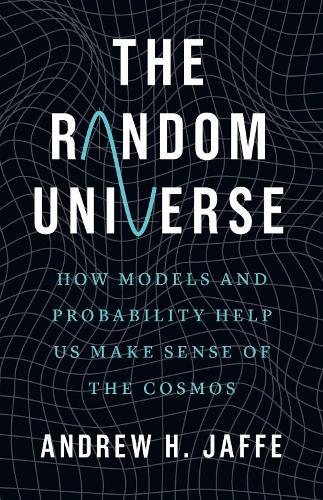Overview
An award-winning astrophysicist looks at how the understanding of uncertainty and randomness has led to breakthroughs in our knowledge of the cosmos All of us understand the world around us by constructing models, comparing them to observations, and drawing conclusions. Scientists create, test, and replace these models by applying the twinned concepts of probability and randomness. Exploring how this process has refined our knowledge of quantum mechanics and the birth of the universe, Andrew H. Jaffe offers a unique synthesis of the philosophy of epistemology, the mathematics of probability, and the science of cosmology. As Jaffe puts Enlightenment thinkers like David Hume in conversation with contemporary philosophers such as Karl Popper and Imre Lakatos and engages with scientists ranging from Isaac Newton and Galileo to Albert Einstein and Arthur Eddington, he uses Thomas Bayes's seminal studies of statistics and probability to make sense of conflicting currents of thought. This is a deep look into how we have learned to account for uncertainty in our search for knowledge—and a reminder that science is not about facts and data as such but about creating models that correctly account for the facts and data.
Full Product Details
Author: Andrew H. Jaffe
Publisher: Yale University Press
Imprint: Yale University Press
ISBN: 9780300250503
ISBN 10: 0300250509
Pages: 288
Publication Date: 11 November 2025
Audience:
General/trade
,
General
Format: Hardback
Publisher's Status: Active
Availability: Awaiting stock

The supplier is currently out of stock of this item. It will be ordered for you and placed on backorder. Once it does come back in stock, we will ship it out for you.
Reviews
“Astrophysics is the science of events that happened long ago and therefore about which we can only learn indirectly and interpret through rigorous theory. Astrophysicist Andrew Jaffe has written a fascinating book about how we know what we know, and how we express our current knowledge of the world.”—Andrew Gelman, Columbia University “Andrew Jaffe demystifies the role of probability and uncertainty in the scientific process, guiding readers through the logic that underpins inference and discovery. An essential read for anyone curious about how we come to know what we know in science.”—Priyamvada Natarajan, Joseph S. & Sophia S. Fruton Professor of Physics and Astronomy, Yale University, and author of Mapping the Heavens: The Radical Scientific Ideas That Reveal the Cosmos
“Astrophysics is the science of events that happened long ago and therefore about which we can only learn indirectly and interpret through rigorous theory. Astrophysicist Andrew Jaffe has written a fascinating book about how we know what we know, and how we express our current knowledge of the world.”—Andrew Gelman, Columbia University “Andrew Jaffe demystifies the role of probability and uncertainty in the scientific process, guiding readers through the logic that underpins inference and discovery. An essential read for anyone curious about how we come to know what we know in science.”—Priyamvada Natarajan, Joseph S. & Sophia S. Fruton Professor of Physics and Astronomy, Yale University, and author of Mapping the Heavens: The Radical Scientific Ideas That Reveal the Cosmos “We don't live in a clockwork universe; the real world is messy and imperfectly predictable. Andrew Jaffe's delightful book shows us that randomness can be just as beautiful as rigidity.”—Sean Carroll, author of the Biggest Ideas in the Universe series
Author Information
Andrew H. Jaffe is professor of astrophysics and cosmology at Imperial College London and director of the Imperial Centre for Inference and Cosmology. He lives in London, UK.



